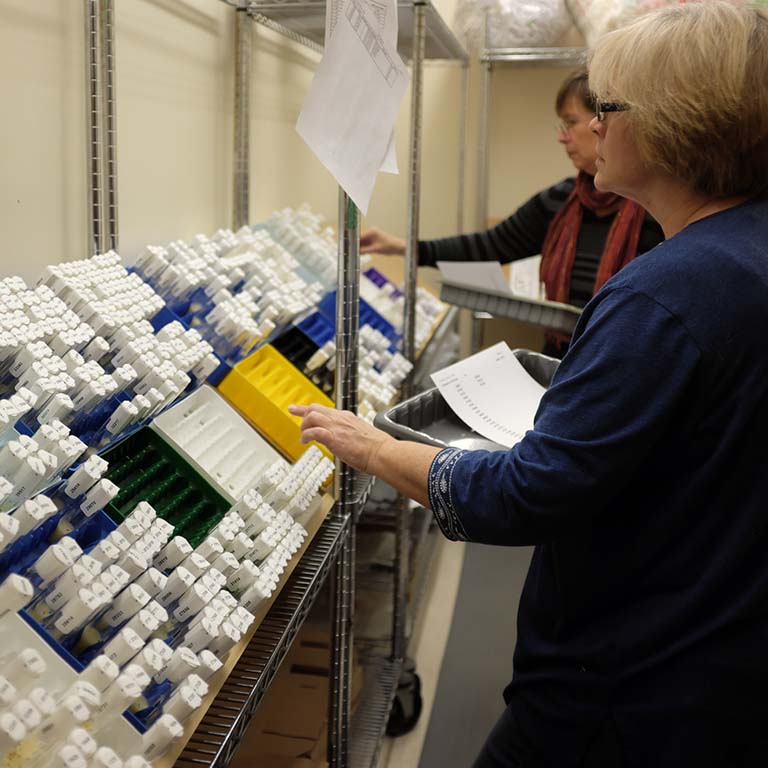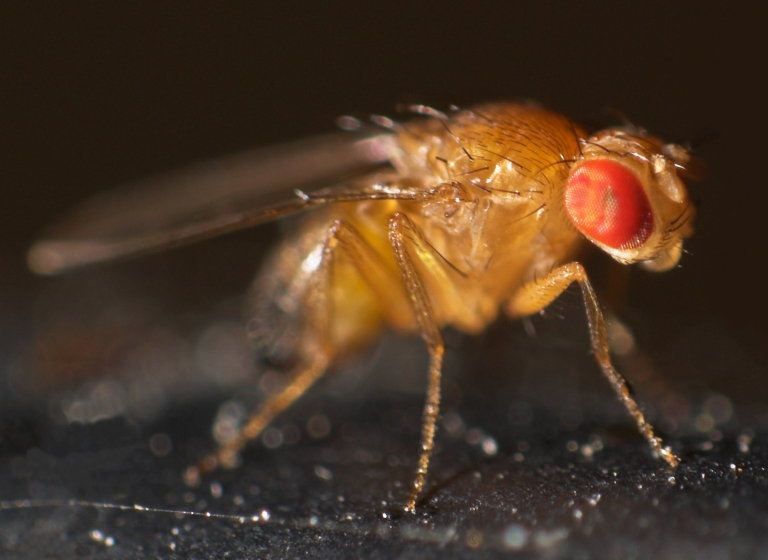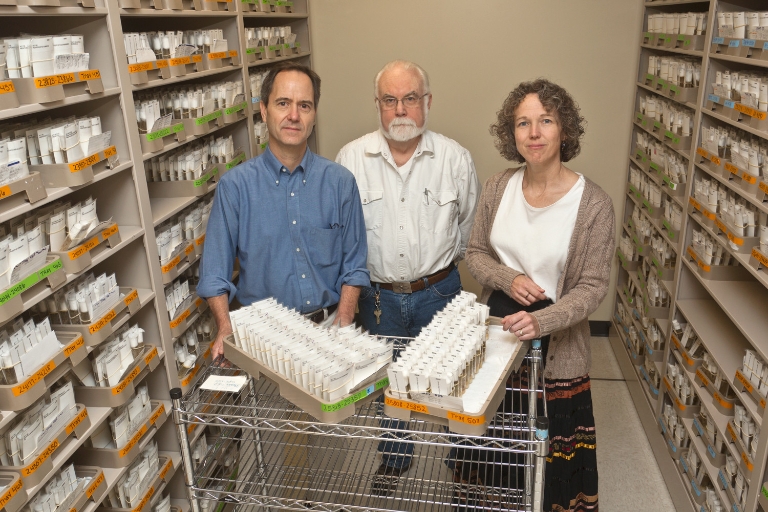The 2017 Nobel Prize in Physiology or Medicine was awarded Oct. 2 to three scientists for research on the body's internal clock, or "circadian rhythm."
Starting in the 1980s, Jeffrey Hall, Michael Rosbash and Michael Young isolated a gene in fruit flies, or Drosophila melanogaster, that controlled a protein's daily creation and destruction. By studying the molecules that regulate this gene, the team identified the genetic mechanisms of the circadian clock.
Indiana University is widely regarded as a leader in the support of research of the type that led to the 2017 Nobel discovery due to three world-class, federally funded facilities that support the use of fruit flies in genetic study: the Bloomington Drosophila Stock Center, the Drosophila Genomics Resource Center and FlyBase.
"Although the last common ancestor of flies and humans existed over 600 million years ago, flies and humans are very similar on a genetic level," said Dan Tracey, an associate professor in the IU Bloomington College of Arts and Sciences' Department of Biology, whose lab has isolated 36 genes involved in pain sensitivity using fruit flies. "The primordial creature whose descendants evolved into flies and humans had many of the same organs as us -- a nervous system and some means to detect external stimuli, for example. This means that studying simpler forms of life often tells us how the same genes work in people."



 The College of Arts
The College of Arts